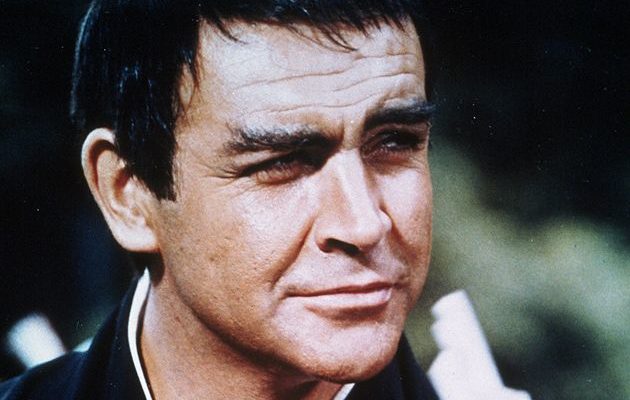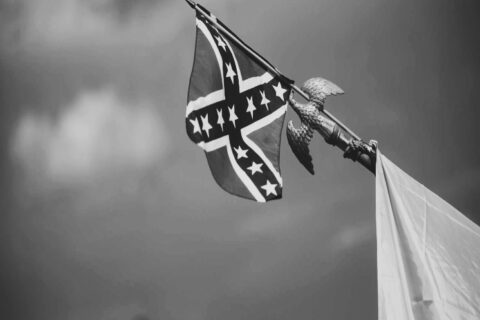“Modern Eastern Spirituality, like the Eastern art of the last centuries, is merchandise from a bazaar.”
Nicolas Gomez Davila
In Spengler’s magnum opus, The Decline of the West, he speaks of several indicators of the fall of civilizations. One of these litmus tests is cultural misappropriation, the act of peoples of another culture adopting aspects from a foreign culture. The forms of a person’s mother culture becomes so muddled, disoriented, and rejected that one seems to grab for anything that has some kind of substance. Spengler noted that this kind of misappropriation was the sign of a consumer culture and what he called the “world-city” or the “megalopolis.” “[All] this is common to the world-cities of all civilizations,” he commented. “Theosophy, boxing contests, minstral dances, poker, and racing – one can find it all in Rome.” The German historian saw this as a problem because alien civilizations will never accept one another, no matter how much they adopt their cultures. Therefore, Spengler would have found weeaboos or wapanese – white people in love with Japan – for example, as laughable since no matter what they do, they are still Western.
Weeabooing is older than you think. Enter Reginald Horace Blyth (1898-1964). One of the greatest sinologists in the English language and perhaps the greatest expert on haiku poetry in the West, Blyth painstakingly attempted to assimilate into Japanese culture, often to his detriment. A contemporary of D.T. Suzuki and other Zen Buddhists who attempted to introduce the West to Rinzai philosophy, Blyth had a romantic fascination with Japan — so much so that after only two years of putting away his English wife he married a Japanese woman in 1937. Moving to Japan in 1940, the couple had two daughters and he took a job as an English teacher at what was later to be Kanazawa University. Despite having Japanese-born children, converting to Buddhism, knowing the language, adopting the customs, and marrying a Japanese citizen, he sought Japanese citizenship several times, only to have it denied each time. His sympathy for the Japanese in WWII was repaid by being declared a British enemy alien, and he was interred in a POW camp for several years. It was also in this camp where he met another nipponophile and WWII vet, Robert Aitken. Aitken would later establish the first Zen Buddhist organization in the United States, the Diamond Sangha of Honolulu. Aitken was also influential in establishing the Zen Studies Society of New York, a posh Eastern religious organization for New York elite looking to ride the dragon.
After the war, Blyth worked to ease tensions between Japanese and their American occupiers. He functioned as a liaison to the Japanese Imperial Household. He helped to forge the Ningen Sengen declaration, by which the Showa Emperor renounced his divinity and declared himself a mere human.
Even though Blyth continued to teach English, write poetry, and acted as an English tutor to Crown Prince (later emperor) Akihito, Japanese society never truly accepted him. Dying of a brain tumor in 1964 in Tokyo, he was buried in a Buddhist cemetery in Kamakura next to D.T. Suzuki. He wrote the following death poem in the traditional Japanese custom:
I leave my heart
To the sasanqua flower
On the day of this journey
Spengler states that Westerners have a knack for studying other cultures and offering analysis. Blyth, like many Westerners who have become captivated by foreign cultures, was a tragic figure. He could analyze Japanese culture and even understood the nuances of their language with scholarly finesse. However, in the end, for the Japanese, it was about blood. No matter how much you practiced zazen or ate soba noodles, being Japanese meant being born into a group of people. That is what makes a nation. One can contrast this with many authors who wrote about Eastern culture with much appreciation but still retained and praised their Western values. George MacDonald Fraser of the Flashman Papers and James Clavell of Shogun come to mind.
In Shakespeare’s Henry V, after the battle of Agincourt, Fluellen praises the king and acknowledges his Welsh heritage, noting that he does not take scorn to wear the leek (the national plant of Wales) as a badge. The king tells him that he wears it for a memorable honor, “For I am Welsh you know.” Fluellen praises Christ and states that all the water in Wye cannot wash the king’s Welsh blood out of his body. “By Jesus, I am your majesty’s countryman! I care not who know it! I will confess it to all the world!”
It’s time we stop trying to use foreign waters to wash our Southern blood out of us. If we are ashamed of ourselves, then why blame others for not respecting us?
-By SoCo

O I’m a good old rebel, now that’s just what I am. For this “fair land of freedom” I do not care at all. I’m glad I fit against it, I only wish we’d won, And I don’t want no pardon for anything I done.





